Health
Toddler milk is ‘potentially harmful,’ AAP warns amid calls for stricter regulations
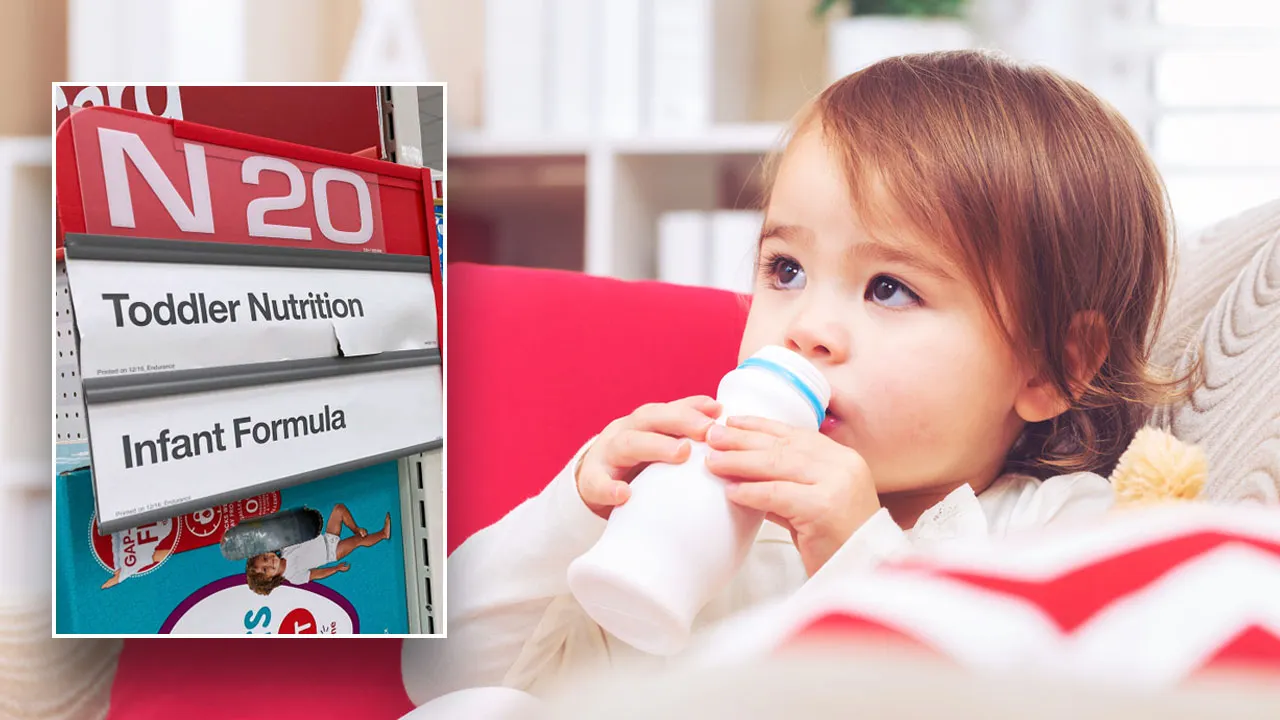
Toddler milk products have grown into a multibillion-dollar global business, despite warnings from health authorities that the benefits of this milk formula are unproven.
The products are marketed with claims of improving brain development or immune function, but the American Academy of Pediatrics (AAP) warned in an Oct. 2023 report that toddler formula is “unnecessary and potentially harmful to young children.”
“For healthy toddlers without a specific medical diagnosis, there is no evidence of a need [for] or benefit from toddler milk,” Dr. Jenelle Ferry, a neonatologist and director of feeding, nutrition and infant development at Pediatrix Medical Group in Tampa, Florida, told Fox News Digital in an interview.
INFECTIONS FROM POTENTIALLY DEADLY BACTERIA IN BABY FORMULA ADDED TO CDC WATCHLIST
In spite of these warnings, toddler milk has grown into a $20 billion worldwide business, according to a recent report.
“It is disappointing that regulations have not been strengthened, given package claims and marketing messages that imply toddler milks are beneficial, or even necessary, for a toddler’s healthy growth,” Fran Fleming-Milici, PhD, director of marketing initiatives at the Rudd Center for Food Policy and Health at the University of Connecticut, told Fox News Digital.
Toddler milk has grown into a $20 billion worldwide business, according to a recent report, even as some say that “for healthy toddlers without a specific medical diagnosis, there is no evidence of a need [for] or benefit from toddler milk.” (Getty/iStock)
Infant formula vs. toddler milk
Most infants in the U.S. receive some or all of their nutrition from formula, according to the U.S. Food and Drug Administration (FDA).
Standard infant formula can be supplemented with appropriate solid foods at around 4 to 6 months of age, ensuring intake of essential nutrients like iron, calcium and zinc, the AAP said in a previous statement.
BREASTFEEDING BAN: GEORGIA MOTHER IS TOLD SHE CAN’T NURSE HER BABY AT WATERPARK, SPARKING DEBATE
Infant formula is regulated under The Infant Formula Act, which requires that the products meet nutritional requirements as the only source for babies through the first 12 months of age, the statement added.
If a toddler beverage is intended for infants younger than 12 months, the product must comply with the FDA’s infant formula regulations in addition to all other applicable food regulations, an FDA spokesperson told Fox News Digital.

The American Academy of Pediatrics (AAP) warned in an Oct. 2023 report that toddler formula is “unnecessary and potentially harmful to young children.” Advocates for the formula, however, feel differently. (iStock)
There are two different types of toddler milk on the market: transition formulas for infants and toddlers 9 months to 24 months old, and toddler milk for children 12 months to 36 months age, according to a previous research report from the NYU College of Global Public Health.
Unlike infant formulas, toddler milks are not nutritionally complete, experts said.
“A healthy diet for toddlers would limit excess processed foods, salt and sugar.”
Approximately 80% of toddler milks have higher sugar content than whole milk and 100% have less protein, the AAP stated.
After toddlers are weaned off breast milk or infant formula, Ferry recommends that they drink milk and water, with the majority of their nutrients coming from solid foods.
“A healthy diet for toddlers would limit excess processed foods, salt and sugar,” she said.
Regulation of toddler milk
“Toddler beverage products intended for children 1 year and older are regulated as conventional foods and must comply with the FDA’s labeling regulations,” an FDA spokesperson told Fox News Digital.
“This includes providing the Nutrition Facts label, specifically for children 1 to 3 years of age.”
When it comes to marketing toddler milks, manufacturers must adhere to certain rules.
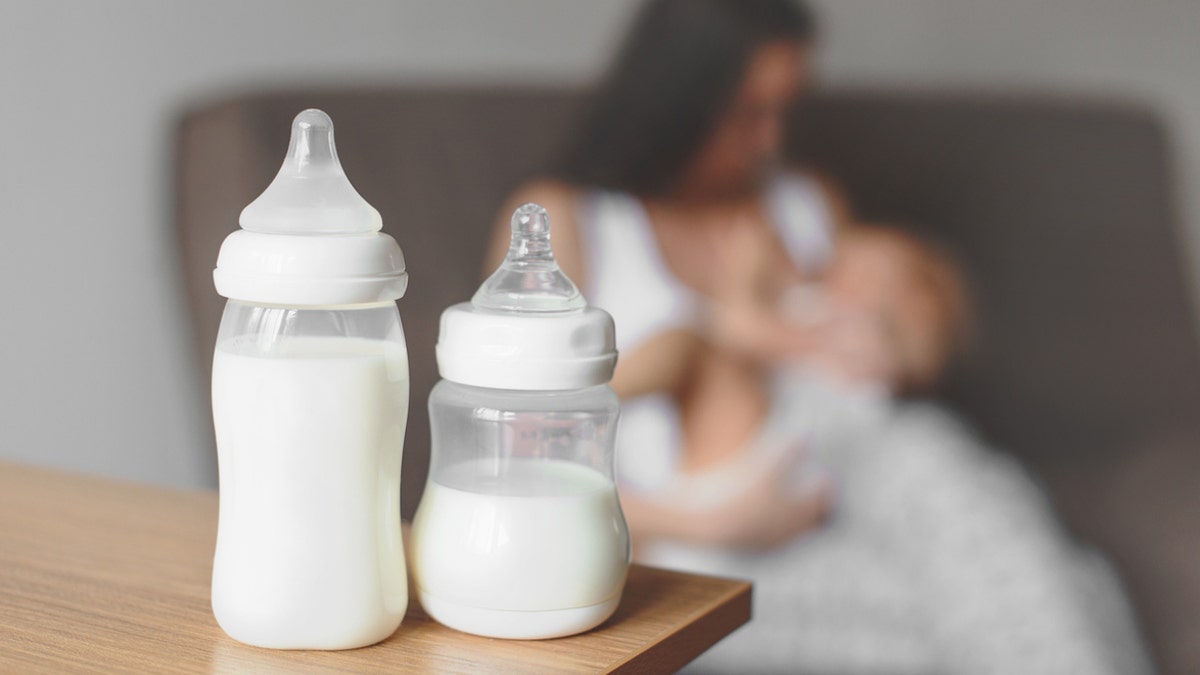
Most infants in the U.S. receive some or all of their nutrition from formula, according to the FDA. (iStock)
“Manufacturers cannot make claims regarding disease conditions, but can use language relating to symptoms, even if they are not supported by evidence,” he told Fox News Digital in an email.
They can claim their product is lactose-free, for example — but cannot claim that it is helpful for lactase deficiency, he said.
BABY FORMULA SHORTAGE: WHY MANY MOTHERS CAN’T BREASTFEED
“Nutrient content claims or health claims are not allowed on food products intended specifically for use by infants and children under 2 years of age unless specifically provided for by regulation,” added the FDA spokesperson.
“In general, the product labeling must be truthful and not misleading.”
Cross-promotion in marketing and packaging
Some experts warn that infant formula and toddler milk are often marketed and packaged in a way that may lead parents to believe they are the same in terms of nutritional content.
“The cross-promotion of toddler milks with infant formula … allows for the trust caregivers have for formula brands to be transferred to a product that is not regulated, contains added sugar, and is not recommended by the AAP,” warned Fleming-Milici.

Standard infant formula can be supplemented with appropriate solid foods at around 4 to 6 months of age, ensuring intake of essential nutrients like iron, calcium and zinc, the AAP said. (iStock)
“Research shows that these messages lead caregivers to believe toddler milks are superior to their family meals and plain cow’s milk – which is much less expensive and is what experts recommend.”
A WHO report noted that “formula milk marketing, not the product itself, disrupts informed decision-making and undermines breastfeeding and child health.”
UTAH MOM FIGHTS FOR HER DAUGHTER’S ACCESS TO DISCONTINUED DIABETES MEDICATON: ‘LIFE-SAVING’
Showing parents educational videos to correct misleading marketing can help to reduce sugary drink consumption in the first few years of a child’s life, Fleming-Milici’s research found.
“Exposure to the videos significantly reduced positive attitudes toward toddler milks and fruit drinks, and reduced intentions to serve both,” she told Fox News Digital.
Potential nutritional benefits
Advocates, however, argue that toddler formula is helpful to many young children who don’t get the proper nutrients in their diet.
“In general, the product labeling must be truthful and not misleading.”
“Research demonstrates that nutrient intake for young children often falls below adequate levels for iron, vitamins D and E, calcium, choline, potassium and fiber,” a spokesperson from the Infant Nutrition Council of America (INCA) told Fox News Digital.
INCA is a Washington, D.C.-based association of manufacturers of infant formulas and toddler milks, representing brands including Abbott Nutrition, Gerber Products Company, Perrigo Nutritionals and Reckitt Benckiser.
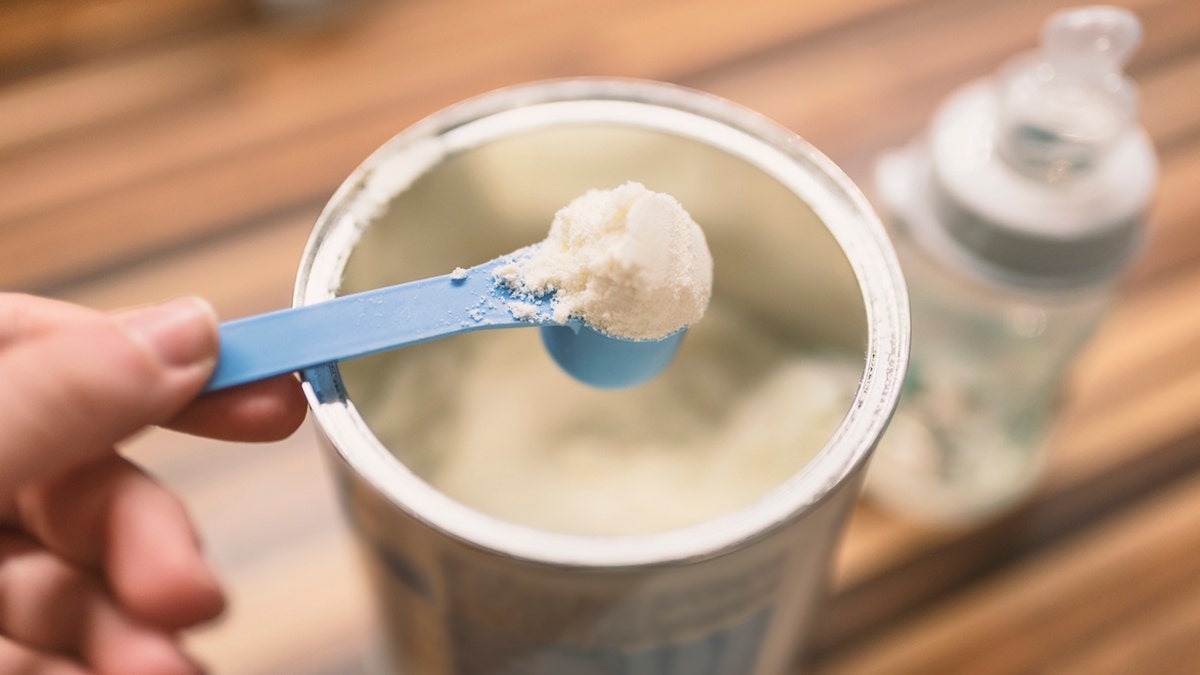
Advocates argue that toddler formula is helpful to many young children who don’t get the proper nutrients in their diet. (iStock)
“For kids 12 months to 36 months who need nutritional support, toddler nutritional drinks have been shown to contribute to nutritional intake and potentially fill nutrition gaps, as recognized globally in the international Codex Alimentarius standard,” the INCA spokesperson added.
When children need extra nutrition because of a medical condition — such as failure to thrive or an intestinal or metabolic disorder — they should receive specialty liquid nutrition rather than products marketed as toddler milk, Ferry noted.
A spokesperson from Nestlé, which makes a variety of powdered milk products for toddlers, said in response to an earlier Fox News Digital query that the company “seeks to provide a range of foods and beverages to support consumers at all stages of life.”

“National health studies indicate that U.S. toddlers have nutritional gaps in their diet often related to picky eating,” (iStock)
The spokesperson added, “Nestlé has consistent standards that apply to our responsible marketing for products intended for babies and young children. Those standards and practices fully comply with the WHO [World Health Organization] code and follow either local law or our own policy — whichever is stricter.”
A spokesperson from Similac also submitted a statement to Fox News Digital in response to an earlier query as well.
“National health studies indicate that U.S. toddlers have nutritional gaps in their diet often related to picky eating,” the spokesperson said. “When they don’t do well transitioning to table foods, or won’t drink milk, our toddler drinks contain many of the complementary nutrients, such as vitamins and minerals, that they may be missing in their diet.”
CLICK HERE TO SIGN UP FOR OUR HEALTH NEWSLETTER
The spokesperson also said, “Toddler drinks may be an option to help fill nutrient gaps for these children 12 to 36 months of age. Abbott does not recommend or indicate its toddler drinks for infants under 12 months of age.”
Fox News Digital also reached out to other companies that make powdered milk products for toddlers.
Parents of young children should always check with their pediatricians for the best and latest nutrition advice.
Melissa Rudy of Fox News Digital contributed reporting.
For more Health articles, visit www.foxnews.com/health.

Health
Your May 2024 Horoscope: What’s in Store for You, Based on Your Sign

Sign Up
Create a free account to access exclusive content, play games, solve puzzles, test your pop-culture knowledge and receive special offers.
Already have an account? Login
Forgot your password?
Get back to the Sign In
Use left and right arrow keys to navigate between menu items.
Use escape to exit the menu.
Health
Texas cats die on dairy farm after drinking raw milk contaminated with bird flu, CDC warns
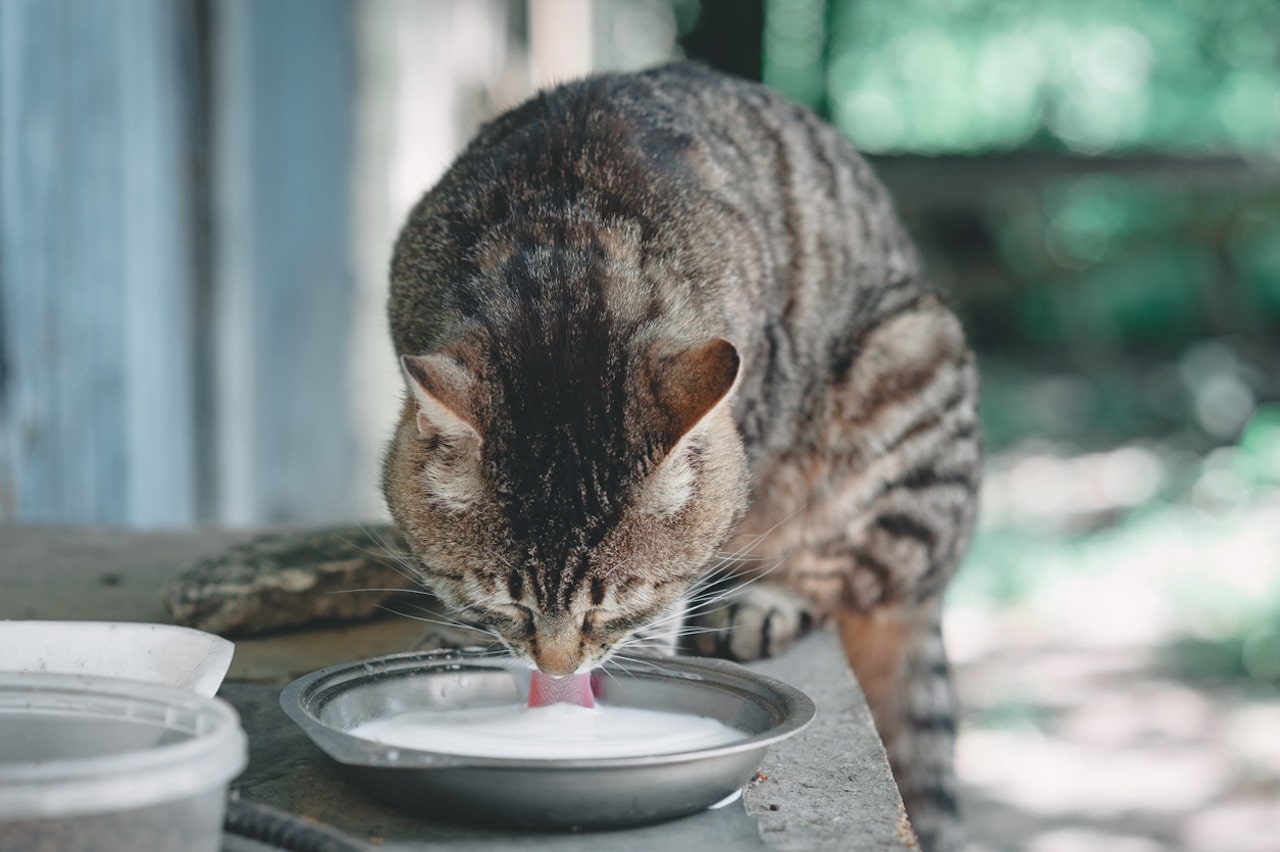
A cluster of cats on a Texas dairy farm died after drinking raw milk from dairy cows affected with bird flu, according to a report from the U.S. Centers for Disease Control and Prevention (CDC).
The felines developed “fatal systemic influenza infection” after drinking the unpasteurized colostrum and milk from cows that tested positive for the virus.
Initally, the cats developed signs of sickness that included “a depressed mental state, stiff body movements, ataxia (impaired coordination), blindness, circling and copious oculonasal discharge,” the report said.
AMID BIRD FLU SPREAD, EXPERTS REVEAL IF IT’S SAFE TO DRINK MILK: ‘INDIRECT CONCERN’
The felines also showed neurological effects during exams.
Of some 24 cats that were given the raw milk from the diseased cows, around half of them died between March 19 and March 20, said the report, which was released on Monday.
A cluster of cats on a Texas dairy farm (not pictured) died after drinking raw milk from dairy cows affected by bird flu, according to a CDC report. (iStock)
Most cats became sick within two or three days after exposure.
Tissue samples from two of the deceased cats tested positive for HPAI H5N1 virus on March 21, the CDC noted.
While exposure to dead wild birds “cannot be completely ruled out” as a source of the virus, the report stated that milk and colostrum are a “likely route of exposure.”
BIRD FLU VIRUS FOUND IN GROCERY STORE MILK, BUT NO RISK TO CUSTOMERS, FDA SAYS
This is based on “the known consumption of unpasteurized milk and colostrum from infected cows,” as well as the high amount of “virus nucleic acid” within the milk.
“The death of the cats suggests that avian flu can cause illness due to ingestion,” said Edward Liu, M.D., chief of infectious diseases at Hackensack Meridian Jersey Shore University Medical Center in New Jersey, in a statement to Fox News Digital.

The felines in Texas (not pictured) developed “fatal systemic influenza infection” after drinking the unpasteurized colostrum and milk from cows that tested positive for the virus. (iStock)
“This is interesting, as many respiratory viruses are optimized for infection via mucous membranes, like the nose and mouth.”
The report reinforced the need to ingest pasteurized milk exclusively, Liu said.
“I can think of no reason to drink raw milk.”
Pasteurization eliminates risk, experts say
Before milk can be sold commercially, government regulations require it to be pasteurized.
During the pasteurization process, raw milk is heated to a certain temperature for a brief period of time and is then chilled again, according to the International Dairy Foods Association (IDFA) website.
This process kills any pathogens and ensures that milk is safe to drink.
“I can think of no reason to drink raw milk.”
“In the U.S., commercial intrastate sold milk is required to be pasteurized,” Dr. Scott Pegan, professor of biomedical sciences at the University of California, Riverside and a biochemist for the United States Medical Research Institute of Chemical Defense, told Fox News Digital last week.
“This process is geared to kill viruses like H5N1 and other bacteria that can pose a threat to human health.”

The cats (not pictured) initially developed signs of sickness that included “a depressed mental state, stiff body movements, ataxia (impaired coordination), blindness, circling and copious oculonasal discharge,” the CDC report said. (iStock)
“Milk that has been pasteurized is safe and there is no current reason to avoid it or other pasteurized milk products,” Pegan went on.
“However, there is a substantial risk of consuming unpasteurized milk and products of that milk.”
Even after viruses and bacteria have been killed in pasteurized milk, remnants can remain in the milk, he said — but they are not dangerous.
The FDA’s recommendations
Last week, the FDA restated its “long-standing recommendation” that consumers avoid drinking raw milk that has not been pasteurized.
CLICK HERE TO SIGN UP FOR OUR HEALTH NEWSLETTER
The agency also recommended that companies refrain from manufacturing or selling raw milk or raw milk products made with milk from cows that tested positive for bird flu, were exposed to the virus or showed symptoms of illness.
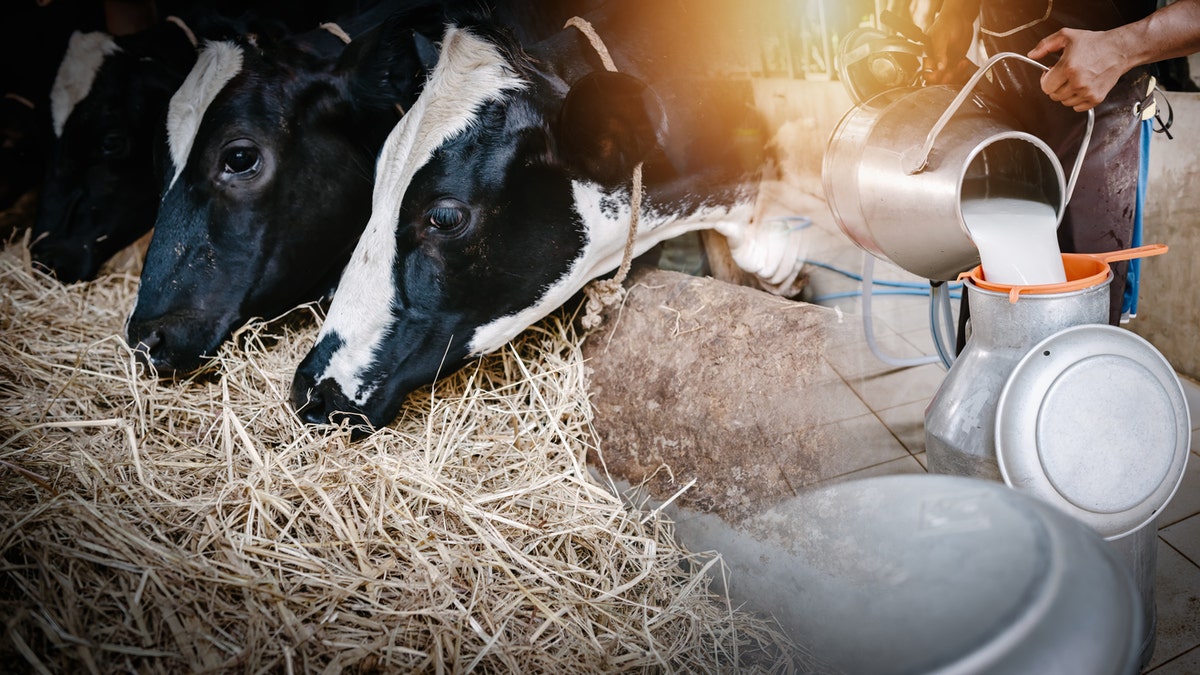
“Milk that has been pasteurized is safe and there is no current reason to avoid it or other pasteurized milk products,” an expert said. (iStock)
The FDA also urged producers to “take precautions” when discarding milk from affected cows, “so that the discarded milk does not become a source of further spread.”
So far, only one person is confirmed to have contracted the virus after exposure to infected cows, the FDA said.
“The CDC says the risk to the general public remains low,” the agency said.
“The FDA and USDA continue to indicate that, based on the information we currently have, our commercial milk supply is safe.”
Fox News Digital reached out to the CDC for additional comment.
For more Health articles, visit www.foxnews.com/health.
Health
Over 50 and Can't Lose Weight? What to Know About Sarcopenia + How to Fix It With Protein

Sign Up
Create a free account to access exclusive content, play games, solve puzzles, test your pop-culture knowledge and receive special offers.
Already have an account? Login
Forgot your password?
Get back to the Sign In
Use left and right arrow keys to navigate between menu items.
Use escape to exit the menu.
-

 News1 week ago
News1 week agoLarry Webb’s deathbed confession solves 2000 cold case murder of Susan and Natasha Carter, 10, whose remains were found hours after he died
-

 News1 week ago
News1 week agoFirst cargo ship passes through new channel since Baltimore bridge collapse
-

 World1 week ago
World1 week agoHaiti Prime Minister Ariel Henry resigns, transitional council takes power
-

 World1 week ago
World1 week agoSpanish PM Pedro Sanchez suspends public duties to 'reflect'
-

 World1 week ago
World1 week agoUS secretly sent long-range ATACMS weapons to Ukraine
-

 News1 week ago
News1 week agoAmerican Airlines passenger alleges discrimination over use of first-class restroom
-

 Movie Reviews1 week ago
Movie Reviews1 week agoHumane (2024) – Movie Review
-

 Education1 week ago
Education1 week agoVideo: Johnson Condemns Pro-Palestinian Protests at Columbia University















